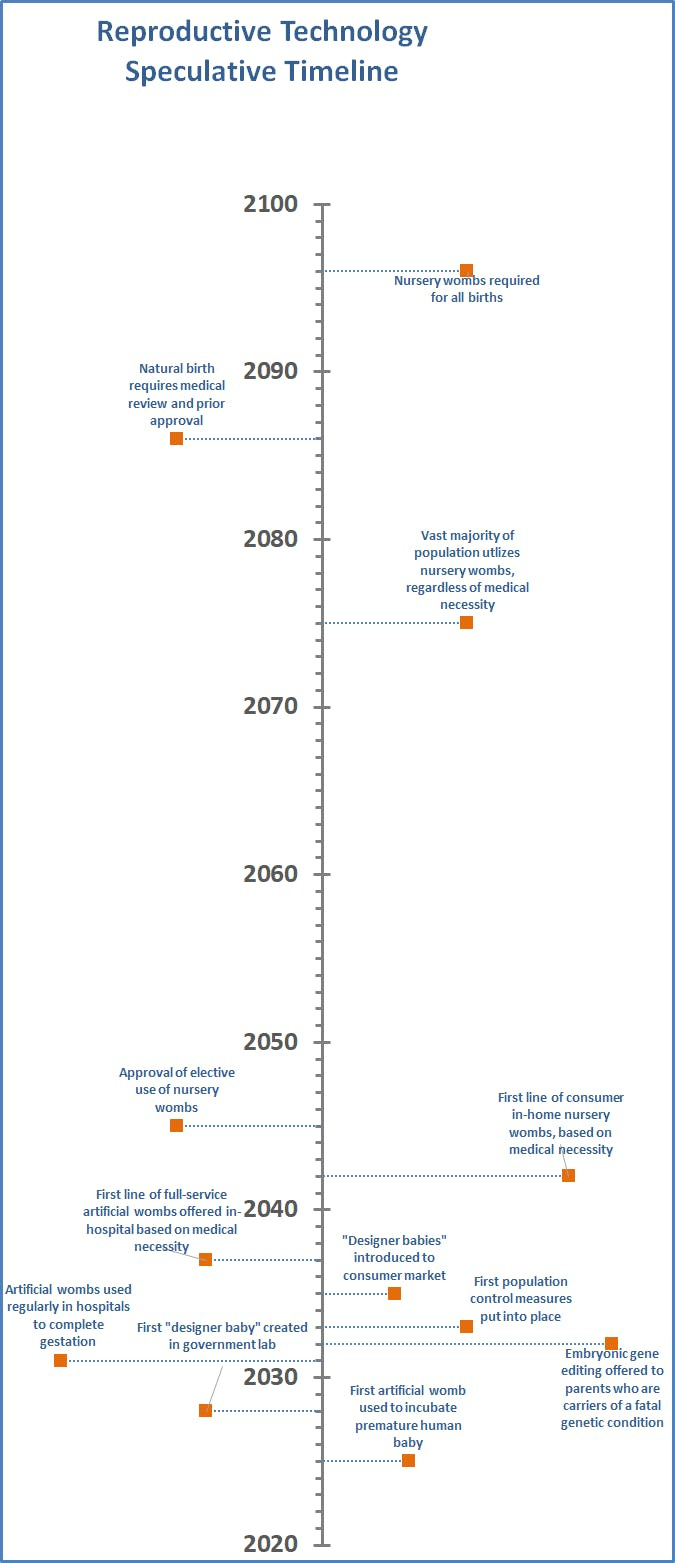How Do You Feel About This Possible Future?
Do you look forward to this kind of future?
Hello!
Welcome back for the second half of the reproductive technology sequence. This part of the research excited me, because I was able to get speculative and really start shaping the world of The Other Women.
You'll see in this week's blog that my mind went a-wandering when I first started thinking about nursery wombs. Quickly I was able to conceive of a cascade of events that might happen in the world of human reproduction after artificial womb technology is refined and made available to hospitals.
This excerpt from early in the book will give you an idea of the endpoint I imagined: Outside, parents are assembling nursery wombs in their homes, inserting their cartridges of perfectly combined DNA, able to watch through the viewing window as their babies incubate. How many of them even remember how children used to be born? Would they even care? The safeguarding procedure performed on all infant girls ensures it can no longer happen anyway. Childbirth has become a matter of predictable, safe convenience, reduced to a cheek swab and a trait-selection session on the BabyMaker application.
That's the world in which Lucinda and the rest of the cast live - a world in which human reproduction has "evolved" so far as to be unrecognizable. But how did they get there? Through a combination of technological evolution, socialized healthcare, and social change. While zooming out on the timeline shows how quickly the world changed, to the people involved, it probably seemed pretty gradual. By the time the book starts, the world has been this way for a few generations, long enough that most people forget it was ever different.
Margaret Atwood, the author of The Handmaid's Tale and The Testaments, said she constructed the dystopia solely from events for which there was a historical precedent, and I guess I inadvertently took the same approach when creating this world. If A, then B. If B, then C. And so on. Do I think all the things I lay out in the post - and further tease out in the timeline - will happen? Maybe not. But, based on history and on currently available medical technology, I believe they could.
What do you think? Is this a future you'd want to live in? If you were in the market for a baby, what would it take to convince you a nursery womb was the way to go? Would you welcome the technology with open arms, or would you resist it in the name of nature?
Reply here and let me know! I look forward to seeing what you have to say.
Until next week,
P.S. Know someone who would be intrigued (or horrified) by the world we've created? Make sure to pass this email along so they can be a cool kid, too.
P.P.S. Here's a pdf copy of the timeline, so you can frame it right next to last week's!




